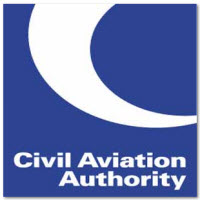Help Yourself UK CAA Tells Disabled Passengers
- Written by George Sensalis
 Following weeks of severe disruptions at airports across the United Kingdom, the Civil Aviation Authority issued today new guidance for airports on how to assist disabled passengers.
Following weeks of severe disruptions at airports across the United Kingdom, the Civil Aviation Authority issued today new guidance for airports on how to assist disabled passengers.
“The CAA’s view is that it is in the interest of airports and airlines to be flexible in the way assistance is provided to disabled and less mobile passengers so that it is effective, whilst encouraging independence for passengers,” CAP2374 states. “We would always encourage assistance staff to discuss with passengers using the service what their needs are, and how best they can be met.”
In a move the disability community will likely read as pro-industry, the U.K. CAA recommends airports inform passengers traveling with loved ones of the advantages of being assisted by a family member rather than an agent.
“Airports should ensure that passengers are aware that assistance could be provided by friends or family if this is the preferred option of the passenger. Agents should explain that being assisted by friends or family might make it easier for a passenger to visit shops and restaurants, provide them with more independence and be quicker.”
The documents also suggest airports can leave wheelchairs for use at key points around the airport for persons with reduced mobility.
CAP1228 differentiates between notified and non-notified passengers. The reason for this is that it takes more time to assist a passenger without pre-notification.
“Staff should explain to passengers who have not pre-notified that they may have to wait longer for assistance (whilst being mindful that on occasion a passenger may have booked assistance, but their requests might not have reached the airport),” CAP2374 states. The Civil Aviation Authority believes that this differentiation should encourage people to pre-notify
However, most of the recent incidents and accidents involving persons with disabilities at airports across the U.K. involved passengers who had pre-booked assistance.
Kate Croston shared her mother’s harrowing experience at Manchester airport. “My mother flew out of Manchester to visit me in Australia. She couldn’t walk long distances, so I booked wheelchair assistance. On the way out in March, the plane to Singapore was delayed by over an hour because no one was available to provide wheelchair assistance,” Kate said. “She arrived back in Manchester yesterday morning to be told she would have to walk from the plane. She refused and eventually they found a wheelchair and pushed her to the luggage claim. They abandoned her with other people who had booked wheelchair assistance, saying they would be back when the luggage came through. After over an hour, there were only their suitcases on the conveyer and she had to get her own luggage and struggle to walk out of the airport.”
Jet2 passenger, Ray King, 68, who has osteoarthritis in both knees and one hip landed on a flight from Dalaman in the middle of the afternoon earlier this month. Ray's wife, Pauline, pre-booked assistance to help him from the aircraft and through the hub. Ray can't go long distances or negotiate steps so she wanted to be sure he would have a comfortable journey at his own pace. However, on landing and after all other passengers had disembarked, Ray claims both they and another couple waited a further two hours for staff from assistance to arrive.
"Despite needing a wheelchair to negotiate the many areas of the airport I was dumped at a door and told 'there is the lift. If it hadn't been for my wife's help I would have been helpless,” Ray said.
Last June 10th, in an unprecedented move, the Civil Aviation Authority put the entire aviation sector on notice and set a deadline for every operator to improve the quality of service disabled passengers receive.
“We will be asking all airports with a high number of passengers using the assistance service, having worked with their airline and ground handling partners, to write to us by 21 June to set out what further assurance they have, and additional measures they have taken, to stop the significant service failures happening in the future. We will continue to closely monitor the quality of service provided and if these significant service failures continue, we will consider whether further action is needed, including using enforcement powers.” However, reports of incidents continue to pile up well after the deadline set by the U.K. CAA.
“I have concerns that this new document will leave the disability community feeling like they've taken a step back.” Roberto Castiglioni MBE said. “I'm astonished by the difference in tone and substance between the CAA letter sent to airports in June and this new guidance.”
Castiglioni’s sentiment is echoed by veteran campaigner Chris Wood MBE. “It seems to me that EC1107/2006 just got diluted, at a time when disabled air passengers need the regulator to strengthen its armor to protect their rights.”
Disability influencer and entrepreneur Joshua Wintersgill has a more positive outlook on this new guidance.“CAP2374 provides a clear reminder and broader guidance to airports and airlines at a critical time. Providing a greater focus on improving pre-notifications, in turn, provides better outcomes for everyone. This should ensure passengers get the assistance they require through enhanced communication and signposting whilst utilizing staff accordingly,” Josh says. “I very much look forward to the airline accessibility framework, and in conjunction with the airport framework, we should see some drastic improvements all around.”










